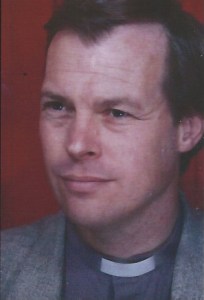Sermon preached at St Peter’s Church, Clifton, Bristol – date unknown, but sometime in the 1990s
Thursday week ago, I attended a day retreat for Bristol church leaders. It was held just over the Suspension Bridge, in Leigh Woods parish church. I left Henleaze straight after celebrating the 10.30am mid-week communion and found myself, on arrival, catapulted pretty quickly into a worship experience which was dramatically different to what we take for regular or normal here at St Peter’s. Among those present were our own Bishop Mike, the Bishop of Bristol, and about twenty Bristol clergy that I recognised from the Anglican church. But the other 80 or so were from the large number of free and community churches meeting throughout the city. The flavour of the worship was clearly evangelical.
Our own neighbour, Tim Dobson, from Henleaze and Westbury Community Church, had organised the day, invited the leaders and introduced this period of worship. He started by saying he wasn’t quite sure what would happen, but suggested that we began with a period of music and singing and followed this by prayer – and if anyone felt the Lord speaking to them with something they would like to share, please feel free to come to the front and share it.
So, with everyone on their feet, the music started, words appeared via PowerPoint on a large screen to the side at the front and we sang songs generally centring on the majesty of Jesus – songs which led some, but not everyone, to extend their hands in praise ‘towards God’. The period of song, some of which I knew and some I didn’t, lasted for the next twenty minutes. The time of prayer then started and, after a while, some of those present, especially those of us towards the back, sat down. People around the church voiced their prayers when they felt moved to: at other times there were short periods of quiet. Occasionally over the next half an hour people took it in turns to come to the front and share with all present the prophecy, the vision or the special word they felt God had placed in their heart.
At the first mention of the word ‘prophecy’ I have to admit I felt my eyebrows rise.
